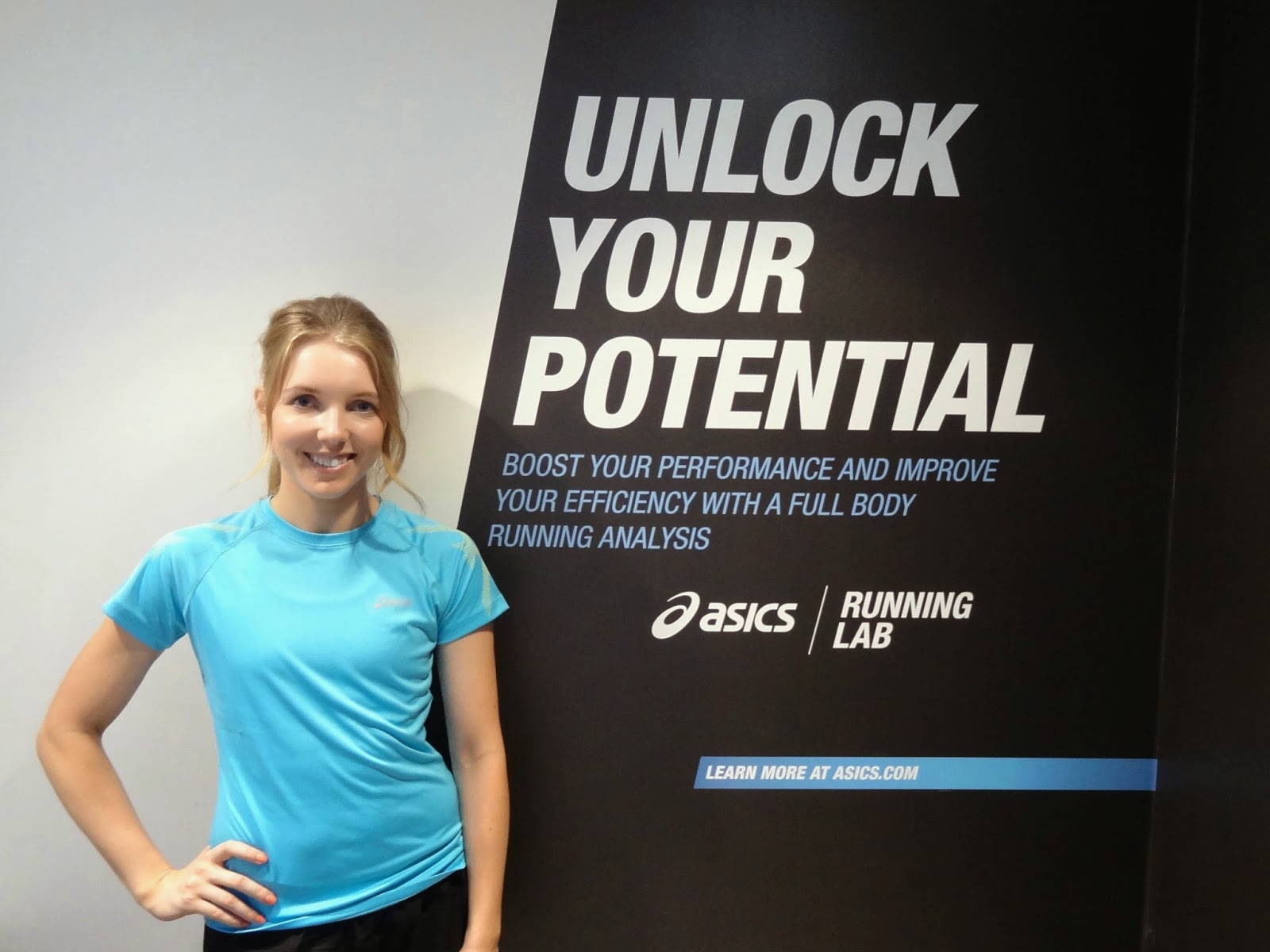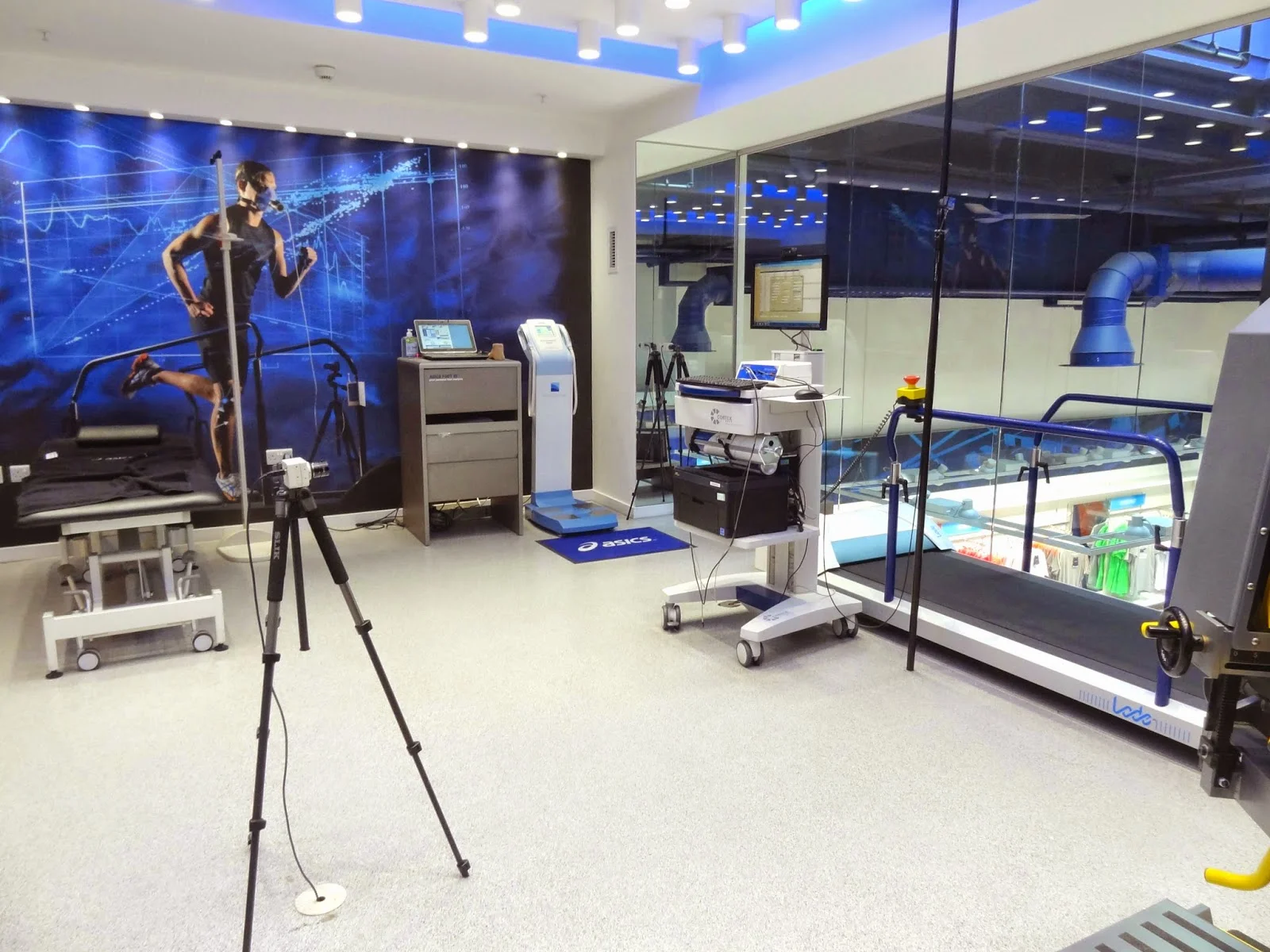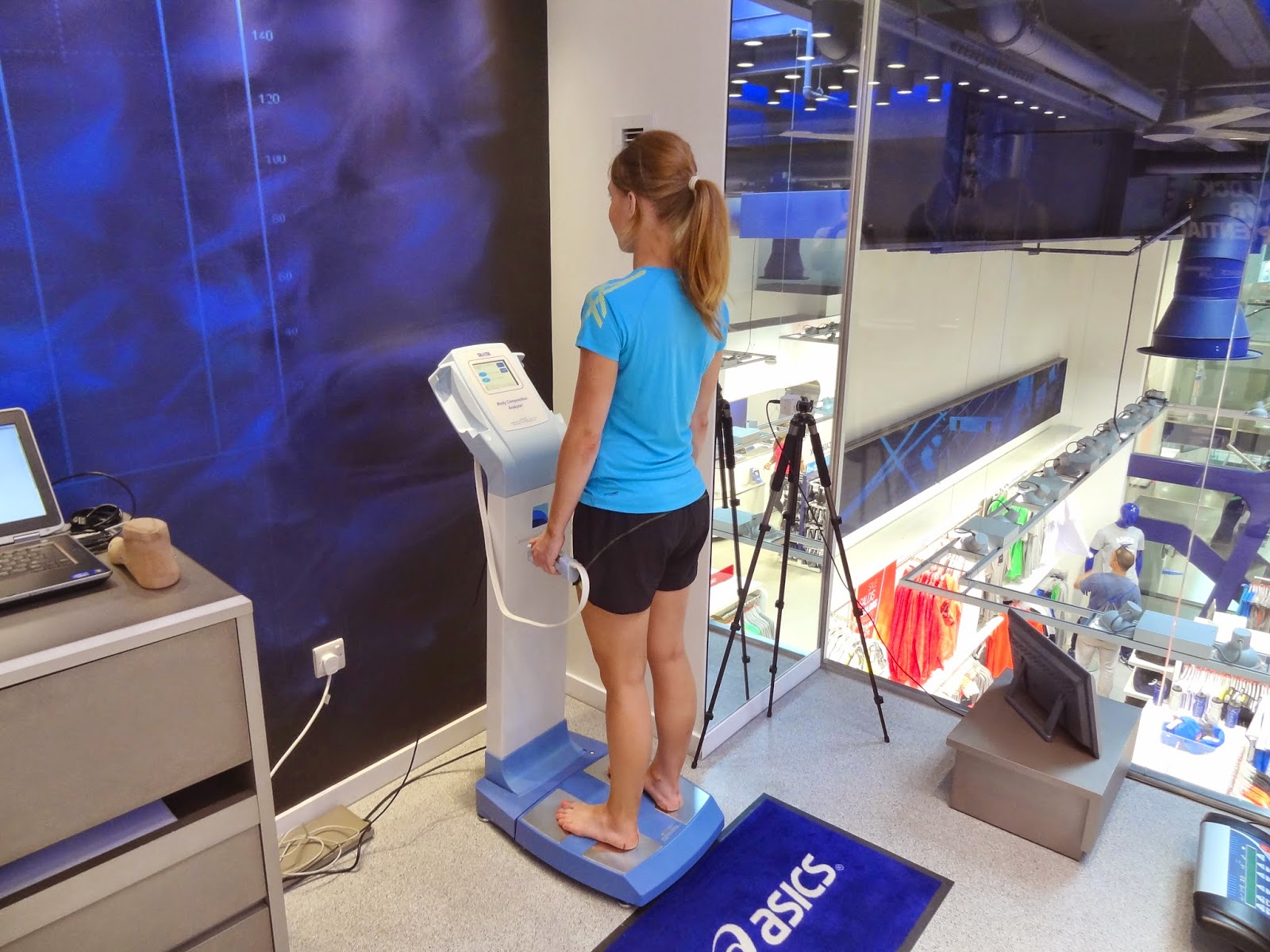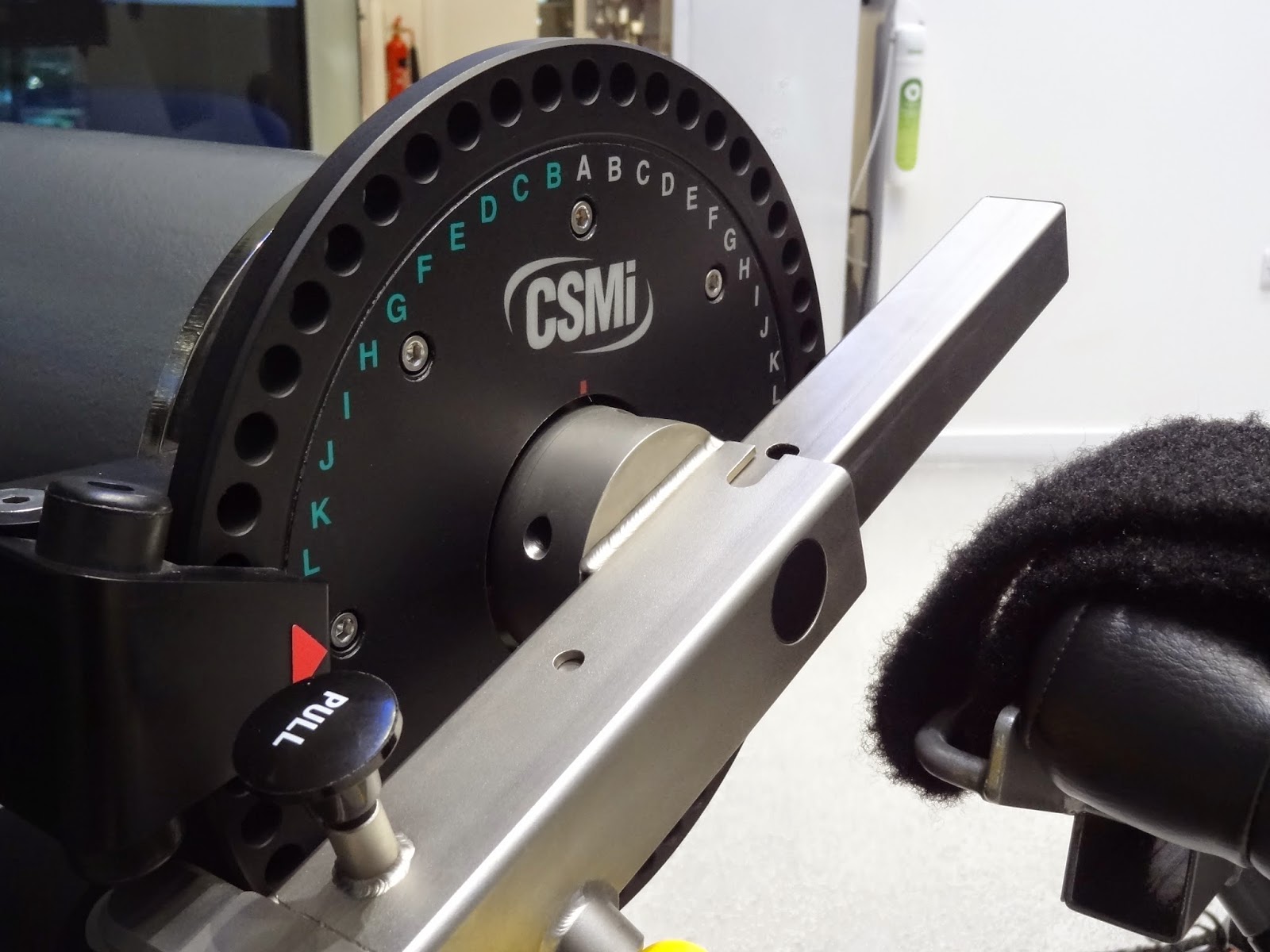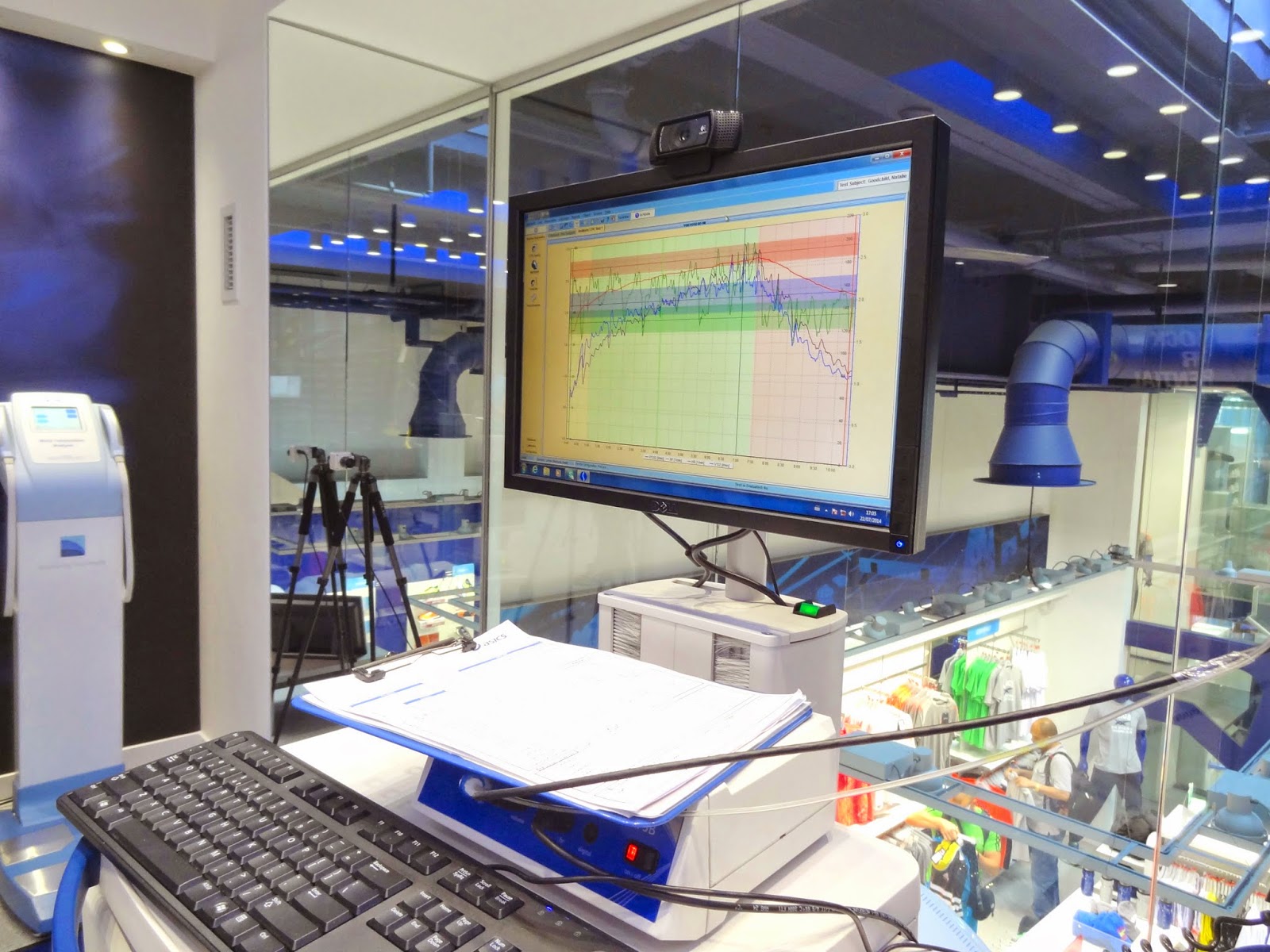Asics Running Lab - Unlock Your Potential
Most people know by now that I'm a total geek when it comes to things like nutrition and exercise science so I was really excited to visit the Asics Running Lab at their flagship store on Oxford Street. The Running Lab is designed to help runners enhance their performance by improving running ability and reducing injury risk. By undergoing tests that provide such incredible guidance as these, it's possible to unlock your potential and eliminate a lifetime of guesswork.
Despite the fact that endurance sport is definitely not my forte, I was fascinated by everything that the evaluation had to offer. For distance runners, I see this as being an essential investment in your training. Whether you want to know your ideal marathon pace, how to improve your running technique, find the perfect pair of running shoes, or learn what other exercises to compliment your training with, the Asics Running Lab is your one stop shop. The Asics Running Ability Measurement focuses on many different factors across the four key areas of physique, strength, form and endurance. After a thorough introduction with the Lab's incredibly knowledgable and friendly manager, Andrew, the testing got underway...
Physique
Leg Alignment
This analysis calculates various leg and ankle angles and looks at the range of movement and flexibility in your lower limbs. These measurements are design to highlight areas that may be predisposed to injury, so that corrective exercises can be recommended.
Static Foot ID
An INFOOT 3D foot scanner uses 4 lasers and 8 cameras to calculate seven dimensions including foot length and arch height before making a comparison against the average for your gender and age. It also indicates whether your feet statically pronate.
Note: pronation is the way that your foot rolls when you walk and run. Pronation may be neutral, your feet may underpronate (also called supination), or your foot may roll inwards excessively (called overpronation).
Body Composition
You've probably heard of a body composition analysis before; I've had a few that I have documented on this blog, although this body composition analysis was done with a monitor far superior to the one that I have previously used at my gym. As well as providing measurements such as body fat % and basal metabolic rate, the technology can even assess the distribution of muscle and fat between your trunk and limbs, which can be an indicator of imbalances.
Strength
This was the part of the analysis that I was probably most eagerly anticipating having been fascinated by this piece of equipment on my trip to the GSK Human Performance Lab, and given that my general training is focused more on strength training compared to endurance sport. However, muscular strength is just as crucial for runners as running can exert a load of as much as two to three times your bodyweight on a single leg. Using an isokinetic dynamometer, leg strength is measured in extension (quadriceps) and flexion (hamstrings) to determine bilateral strength differences (the difference in strength between your legs), a flexion/extension strength ratio (the difference in strength between your quads and hamstrings), and your strength score based on elite level endurance runners (to give you something to aim for!).
Endurance
Given that endurance is often cited as the most important factor in running ability, this is tested at the Asics Running Lab. The Running Ability Test measures endurance by testing respiratory metabolism, which involves wearing a delightful mask. Despite it having it's own climate inside (tropical and sweaty), the mask is actually relatively comfortable and thankfully less invasive than other endurance tests that involve testing blood lactate levels. The test uses various parameters to determine your anaerobic threshold, and estimates half and full marathon times taking both training and fatigue into account. From this, an ideal running pace is also recommended, which I found especially helpful as a bit of a running-newb.
Running Form and Motion
Now for the part that directly assesses your running technique. While on the treadmill for the aerobic endurance measurement the Asics team video you from three angles: front, back and side. With their highly trained eyes, they are able to identify inefficiencies in your run which could waste energy (such as excess vertical movement, aka. 'bounciness' - guilty!) or even cause injury. Moreover, a dynamic foot ID tracks step frequency and step length, as well as foot landing patterns and pronation type. Some Asics stores offer the gait analysis part of this test for free when you are buying a pair of running shoes at it allows them to assess which ones are most suitable for you and I highly recommend taking advantage of the opportunity.
Full Running Lab Report
After that incredible experience, I received a personalised Asics package complete with:
+ a full-report collated by Andrew, which aids your interpretation of the measurements and makes useful training recommendations;
+ an Asics Running Science 70-page book, which includes further explanation of the testing as well as exercise guides, and;
+ a DVD of your running form assessment. I haven't plucked up the courage to watch mine yet...
Overall, I had a brilliant afternoon at the Lab. The full Asics Running Lab measurement and analysis costs £200, which I think is amazing value not only for the access that you get to a fantastic facility and expert knowledge, but for the vast insight and understanding of your own body that you gain. Particularly if you are a distance runner, whether a novice or experienced, I've no doubt that you'd benefit from a session with Andrew.
If you'd like to have your own Asics Running Lab evaluation, get in touch by calling 020 7629 0154 or emailing londonoxfordst.runninglab@asics.com.
